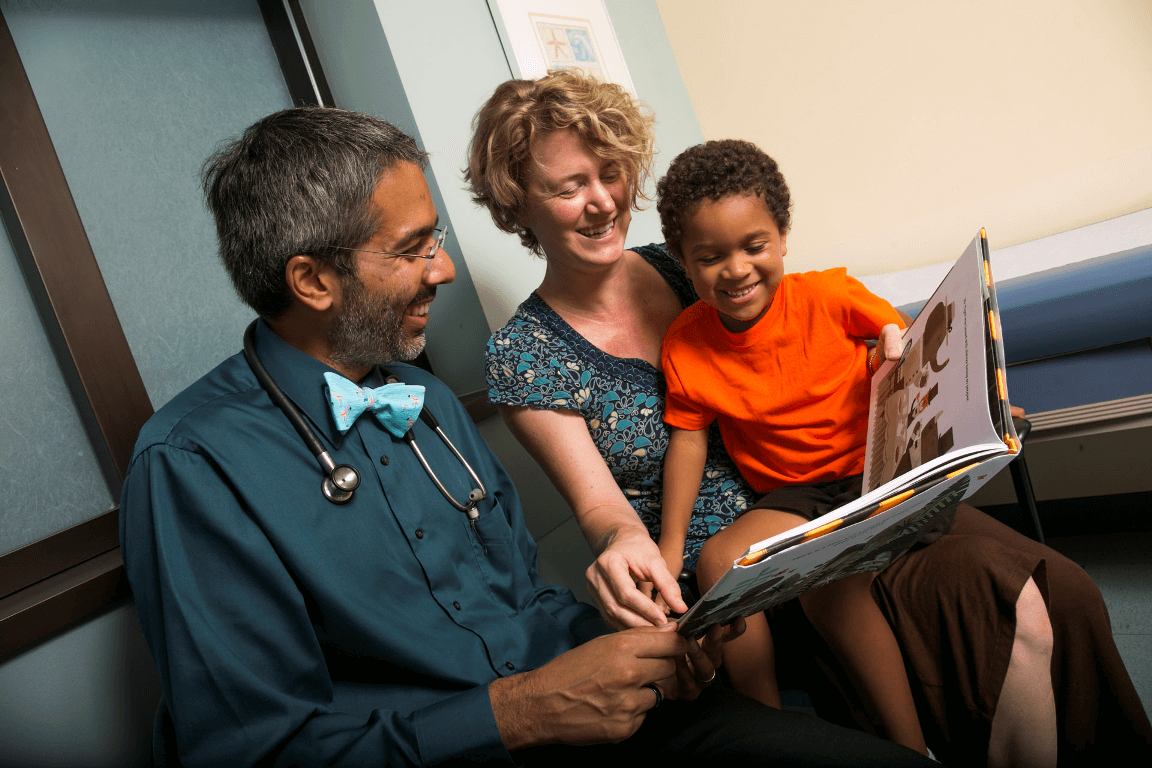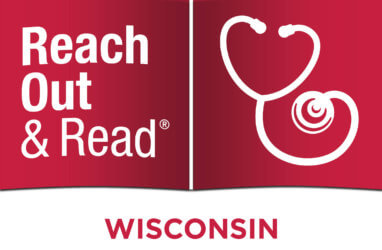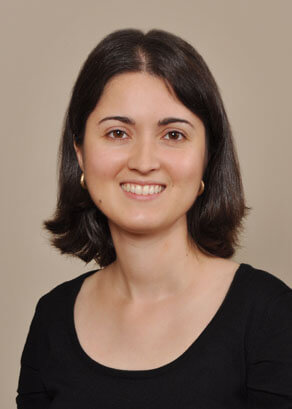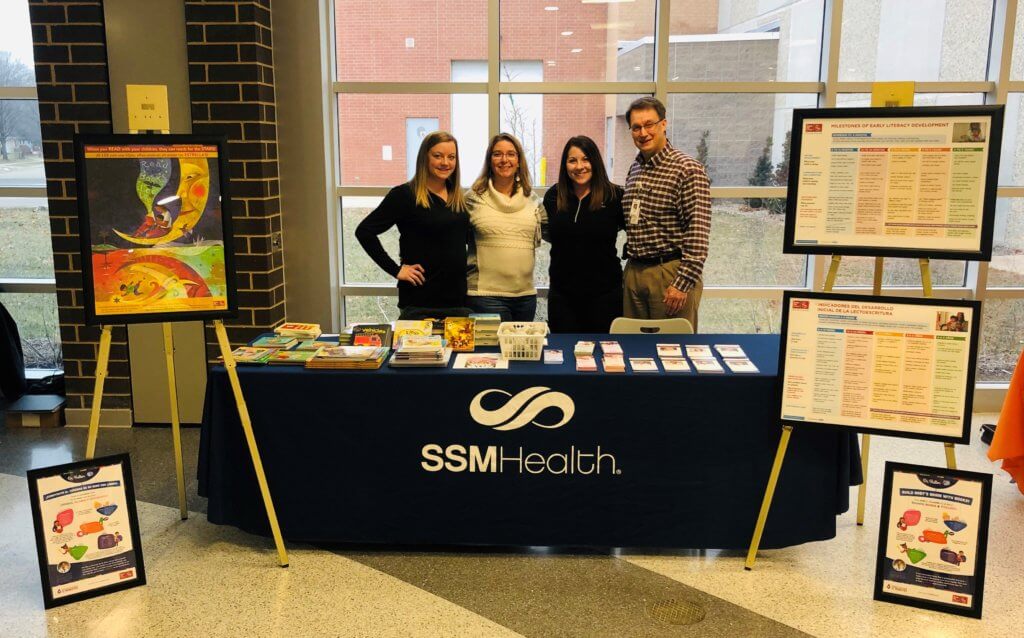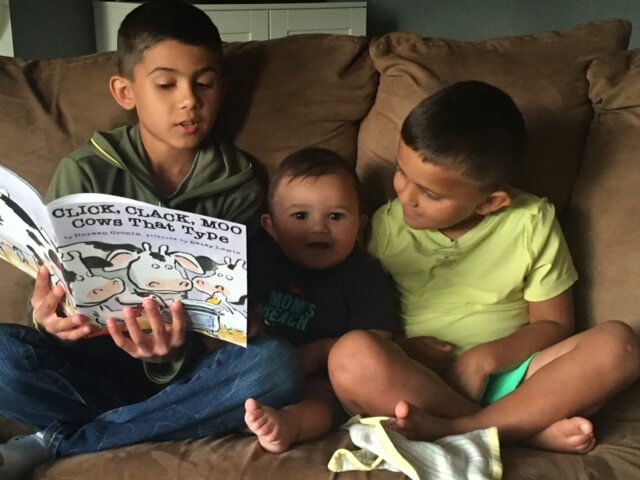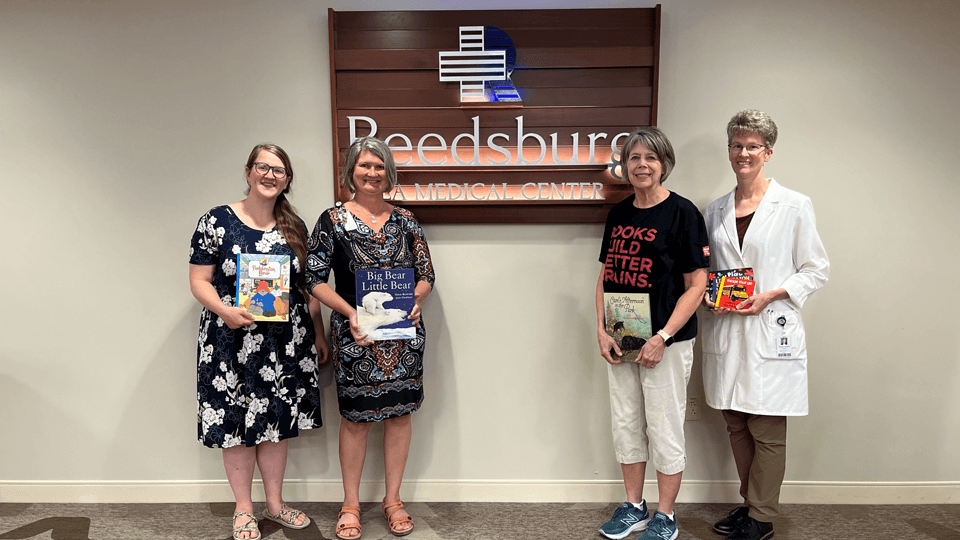
Kris Houtler attended a Wisconsin Library Association conference in 2012. It was there that she heard Dipesh Navsaria, MPH, MSLIS, MD, present on Reach Out and Read. Houtler, then an assistant librarian at Reedsburg Public Library, was instantly inspired.
“I knew at that moment I needed to bring Reach Out and Read to Reedsburg, but I could not do it alone,” said Houtler.
Once back from the conference she connected with Joanna Laukant, MD, family practice physician at Reedsburg Area Medical Center (RAMC), the RAMC Marketing Department, and Heidi Feller, a community activist for literacy and children.
With everyone committed to bringing ROR to Reedsburg, the committee started the process to obtain the funding needed to purchase the first year of books, which is a requirement to become a Reach Out and Read site.
“We presented to several civic organizations in the community that pledged contributions to make it happen,” said Houtler. “Since then, the RAMC Foundation has covered the costs to keep ROR a part of the Reedsburg community.”
It took two years after the fateful WLA conference to implement Reach Out and Read at Reedsburg and on November 1, 2014, it became an official ROR site.
Since implementing ROR, Reedsburg Area Medical Center has provided more than 15,000 books at well-child visits of children 6 months to five years old. In 2022, it had 1,866 well-child visits and prescribed 1,700 books.
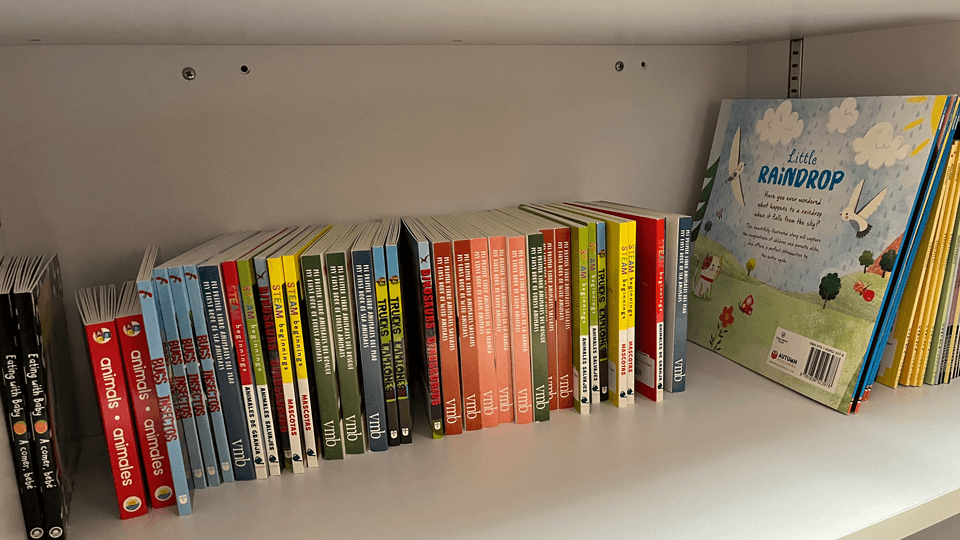
Reach Out and Read, the only pediatric literacy model endorsed by the American Academy of Pediatrics, has benefits in both early literacy and early relational health. Families that are part of a ROR site are 2.5 times more likely to read together, children have accelerated language development, improved social and emotional development, and much more.
“I am an advocate of it because it is so obvious that reading with kids is important to not only their learning how to read but also their social development and even their fine motor skills,” said Laukant. “It is just so important.”
Laukant continues to be grateful for the long-standing partnerships with the Reedsburg Public Library and the Reedsburg Area Medical Center Foundation.
“It is nice to have the librarian choose the books,” said Laukant. “Some of the books are old classics that I recognize from many, many years ago, and some are newer ones that I am not even up on, but kids recognize them when you give it to them. It’s nice to have someone who is up to date on that.
“It’s great that the RAMC Foundation supports Reach Out and Read and is completely onboard with how important reading is.”
Jess McCarlson is now the youth services librarian at RPL and took over the ROR book ordering duties from Houtler when she retired.
“It is kind of fun as a librarian in having the edge, knowing the quality of books that are out there and getting to order those,” said McCarlson.
She also enjoys that the collaboration extends the library’s mission.
“There are people at RAMC that reach the lives of children and their families that don’t know the library exists,” said McCarlson. “Knowing that, and it being a goal of mine both personally and professionally to improve the lives of children through literature, the partnership means a lot to me.”
The Reedsburg community is truly working to build a world where every child is read to every day.
—
About Reach Out and Read: Reach Out and Read is 501(c)3 nonprofit that gives young children a foundation for success by incorporating books into pediatric care and encouraging families to read aloud together. As the only evidence-based national pediatric model focused on emotional connections endorsed by the American Academy of Pediatrics, Reach Out and Read serves children in all 50 of the United States through 6,000 clinics and 33,000 clinicians. With 281 participating sites in medical clinics across Wisconsin, Reach Out and Read provides more than 170,000 children and families in 56 counties with books and resources to empower parents as their child’s first and best teacher. For more information, visit reachoutandread.org.
